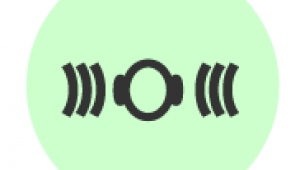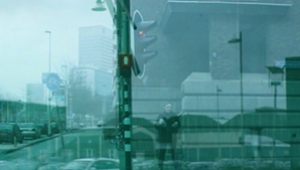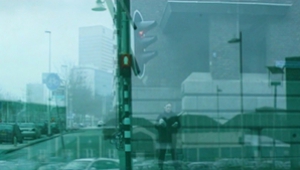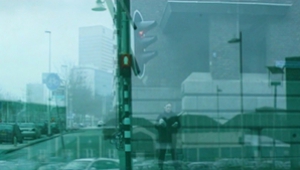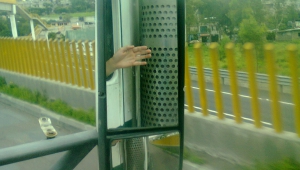Claudio Parodi
Prima del terzo
1 - vrúah 4'04"
2 - Elohím 14'04"
3 - merahèfet 17'04"
4 - al penè 7'31"
5 - hammàim 14'04"
total running time 57'27"
all music by Claudio Parodi (SACEM)
One of my favourite walk is in the harbour of my hometown, because of the sound brought by the wind. For long time I have day-dreamt about including that sound in my own music. I got to the point reading the poem Prologo al buio by Erri De Luca (from Opera sull'Acqua e altre poesie, Einaudi 2002). In the poem there is a Hebraic quote from Genesis, before the third verse (hence the title of my composition, the Italian for "before the third"): "vrúah Elohím merahèfet al penè hammàim", that means, translating from the Italian translation by De Luca, "and the wind of God breaths on the faces of the waters". The music was already there, it was just a matter of recording it.
Nothing against pure field recording. But, as the inspiration came from the very root of Hebrew culture, I felt to go deeper. My dear friend Prof. Maria Rosa Montiani taught me everything of the very little I know about Hebrew culture.
I planned five field recordings, one for each Hebrew word (in Hebrew, "al penè" is written as a single word). Referring to the map of the harbor, the recorder was placed five times from top right to bottom left, imitating the direction of Hebraic writing. The date and the length of the field recordings were chosen following the value given by qabbaláh to each word. As an example, vrúah is 4, so the first field recording (four minutes plus two seconds fade in and two seconds fade out) happened on the fourth hour of the fourth day of Cheshvàn, the second month of Hebrew calendar, that is, on October the 20th, 2012, 23.16, and so on for five months.
The field recordings were later re-shaped in studio imitating the Ashkenaze ductus of the letters of the words: panning for left to right and reverb to no reverb for top to bottom.
Claudio Parodi, March the 15th, 2013
Composed from Novenber the 19th to December the 19th, 2012.
Field recording by Claudio Parodi from October the 20th, 2012 to February the 25th, 2013. Zoom H2 Handy Recorder. Field recording executive producer: Margaret Dumont.
Studio recording by Claudio Parodi and Paolo Valenti at Riserva Sonora www.riservasonora.com on March the 6th and the 12th, 2013. Lexicon Concert Hall reverb.
contacts:
cla.parodi@libero.it
http://myspace.com/claudioparodi
www.facebook.com/claudio.parodi.313

